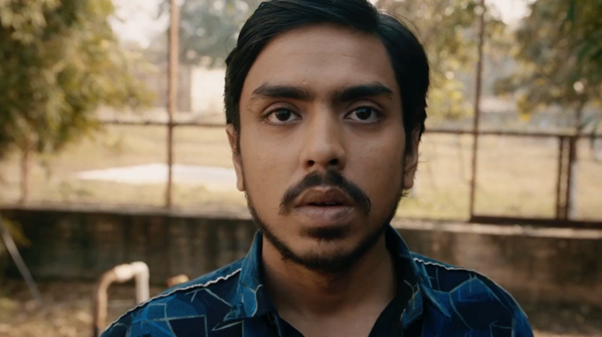The White Tiger
Eat, or get eaten! Based on a New York times bestseller, "The White Tiger" by Aravind Adiga.
MOVIE REVIEW
Shreyash Manral
9/4/20253 min read


This Netflix original came out sometime last year, I think—it’s been a while—but I only got around to watching it recently. Don’t ask me why not earlier. Why now? You know how it is—Netflix throws a sea of options at you every time you open it. And let’s be honest, where else in life do you get that kind of choice, mostly whenever you want it? It gets to you—the excitement of wanting to watch this, then that! The cycle goes on until you end up watching something familiar, something you can rewatch—like for me, ZNMD (There's a link here. I think you should visit.). What is it for you?
Anyways, the White Tiger. Starring in lead role, Aadarsh Gaurav and supporting cast Rajkumar Rao and Priyanka Chopra. How often does that happen? Doesn’t it seem a bit weird, but it’s beautiful, that’s cinema!
The story follows a young boy from a poor village in Laxmangarh, Bihar—Balram Halwai. In the caste system of the Indian society, the four main varnas—Brahmin, Kshatriya, Vaishya, and Shudra—were historically linked to the type of work each group did. The “Halwai” in Balram’s name is a subtle nudge to this system, which the film occasionally critiques with a sarcastic bite. Born into a poor, struggling family, Balram somehow manages to learn English fairly well, thanks to a teacher appointed by a regional minister who wanted children from backward areas to get proper education. Noble! This teacher recognized Balram’s talent and offered him a chance to continue his education in an esteemed city school. He was impressed not only by Balram’s grasp of the language but also by the boy’s determination to make the most of the free coaching—a stark contrast to other children who barely tried. The teacher spoke of the “White Tiger,” an exception in a vast jungle, and so Balram earned this title. What a beautiful origin story!
Wait! Wait! That’s a part of the origin story. The opportunity he was presented with, left home empty handed, it got nothing. Balram’s grandmother forced him to stay back in the village, and work in a tea stall to help his elder brother and father earn some cash, to pay off a debt they owed to the landlord of the village, played by Mahesh Manjrekar. How could this boy have imagined himself to be stepping up in the world, given where he was from? How could he have dared to dream? Not sure about how, but that's what he did!
Years passed. Balram grew into a hardworking young man, still holding on to the skill he learned long ago. By sheer luck and effort, he got the chance to work as a driver for the landlord’s younger son, Ashok, played by Rajkummar Rao. Ashok, who studied in the US, didn’t flaunt the superiority his father and brother felt over those from the “backward” section. In fact, it was Ashok’s compulsion that got Balram a seat in his car as a driver. What a promotion! It was big, for somebody working in a tea stall, massive! Where on one hand he was happy leaving “the Jungle” behind, there was still a part of him connected to it, how could it be just ripped off, he cared for his brother, not for his grandmother who saw him only as a source of income for the family which basically did nothing.
The White Tiger had made it. Leaving “the Jungle” behind brought happiness, but Balram’s roots still tugged at him. He cared for his brother, but his grandmother only saw him as a source of income. Driving for Ashok was a dream—he was no longer looked down upon, not even by Ashok’s wife, Pinky, played by Priyanka Chopra. They became like family, yet Balram still saw them as his “Malik.” That sense of purpose—serving a master—had been ingrained in him from childhood.
Things were fine, until one accident changed everything. Until then, Balram hadn’t realized the dark side within himself. The cloud of security he was riding on came crashing down. All his illusions—about equality, about fairness—vanished. He realized the world didn’t operate the way he hoped. And this realization gave birth to a devilish new origin story: Balram kills Ashok and escapes with a bag full of cash—which Ashok was actually using for bribery, a fact Balram justifies. He flees to Bangalore, starts his own cab service, and becomes a successful entrepreneur.
The origins story.
The film is shot in a peculiar way --- Balram telling his story to a Chinese businessman who is supposed to visit Bangalore and explore potential in inventing, via email, so the story that follows is actually Balram narrating to this Chinese businessman. Now why would this huge businessman read his email? Even if he did, how would he react to the part where he kills his master? I think Balram knew he will not open the mail, let alone read it. What he also knew, was that if he did not narrate his story to him, how would we have got to know about it. Wow!
